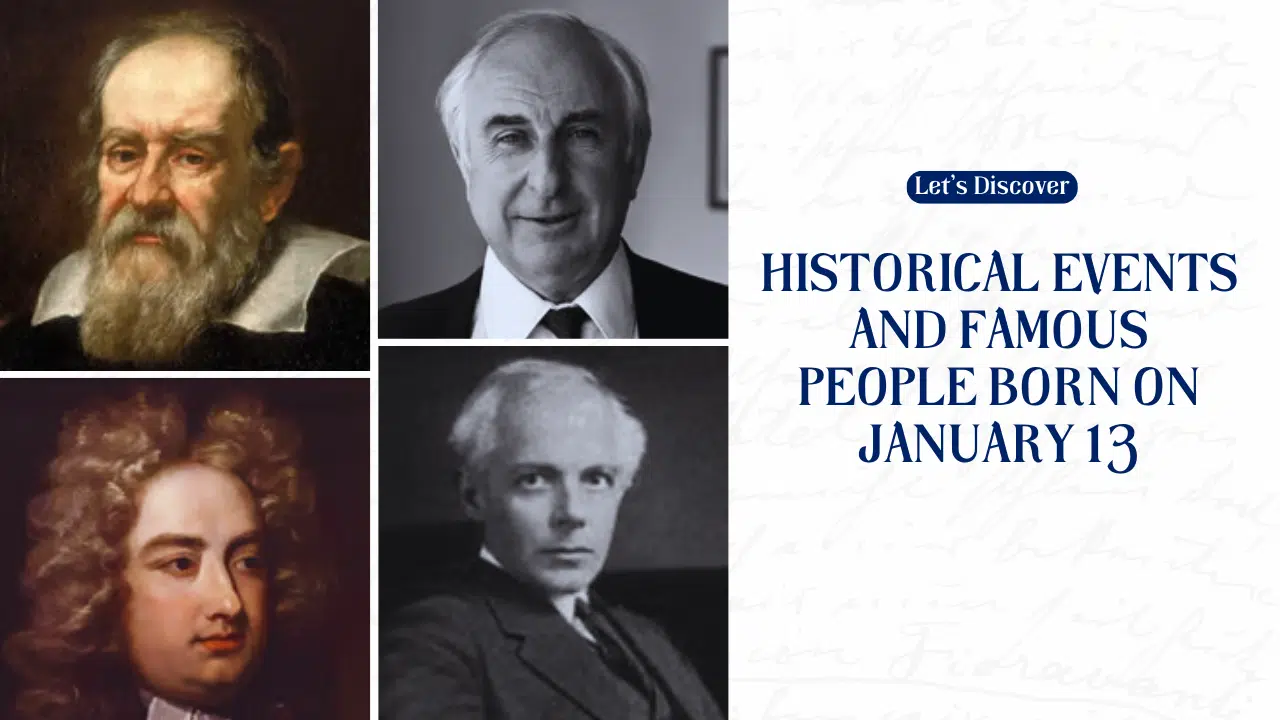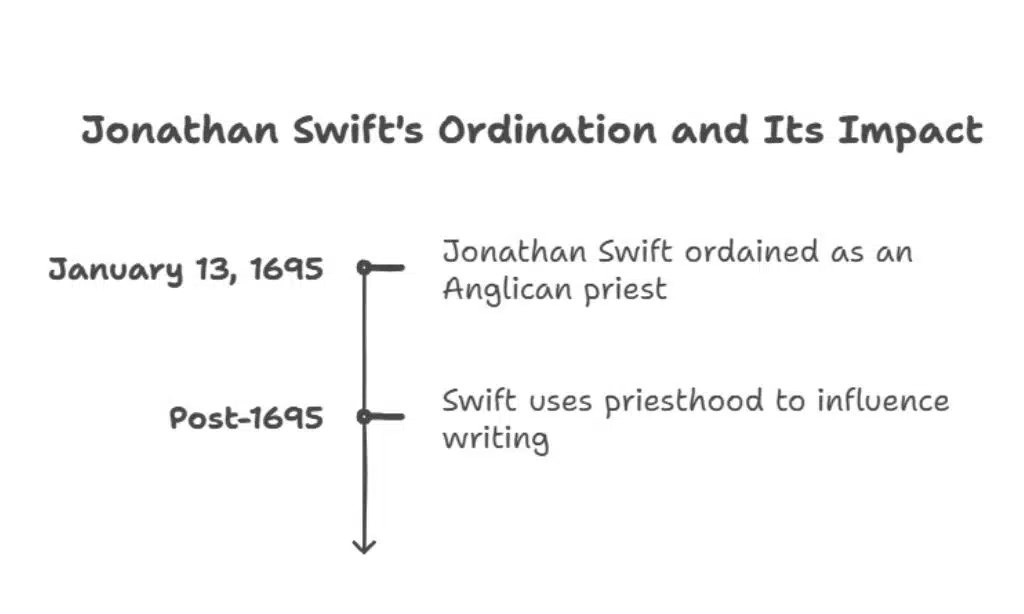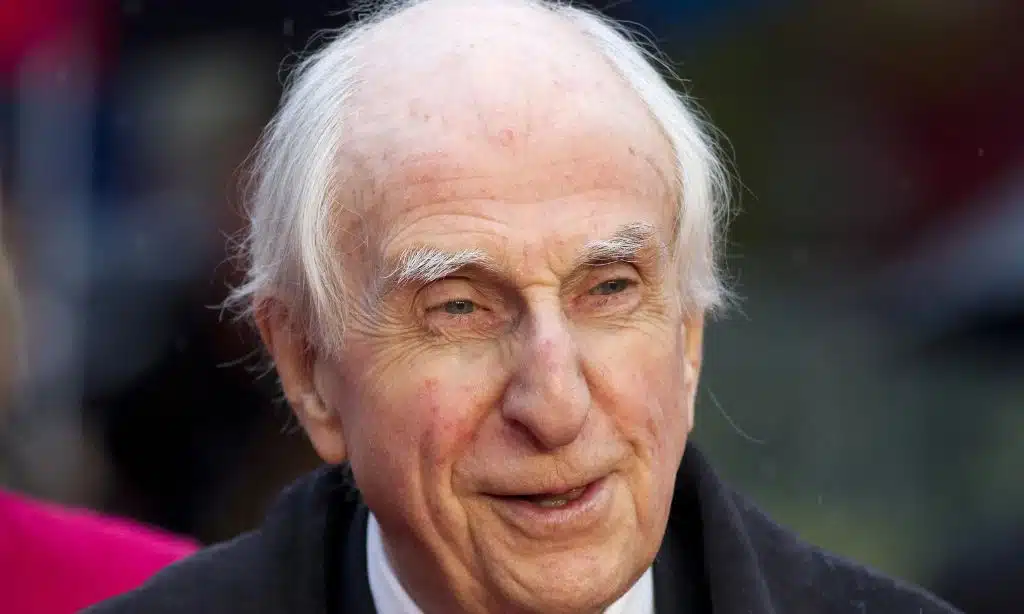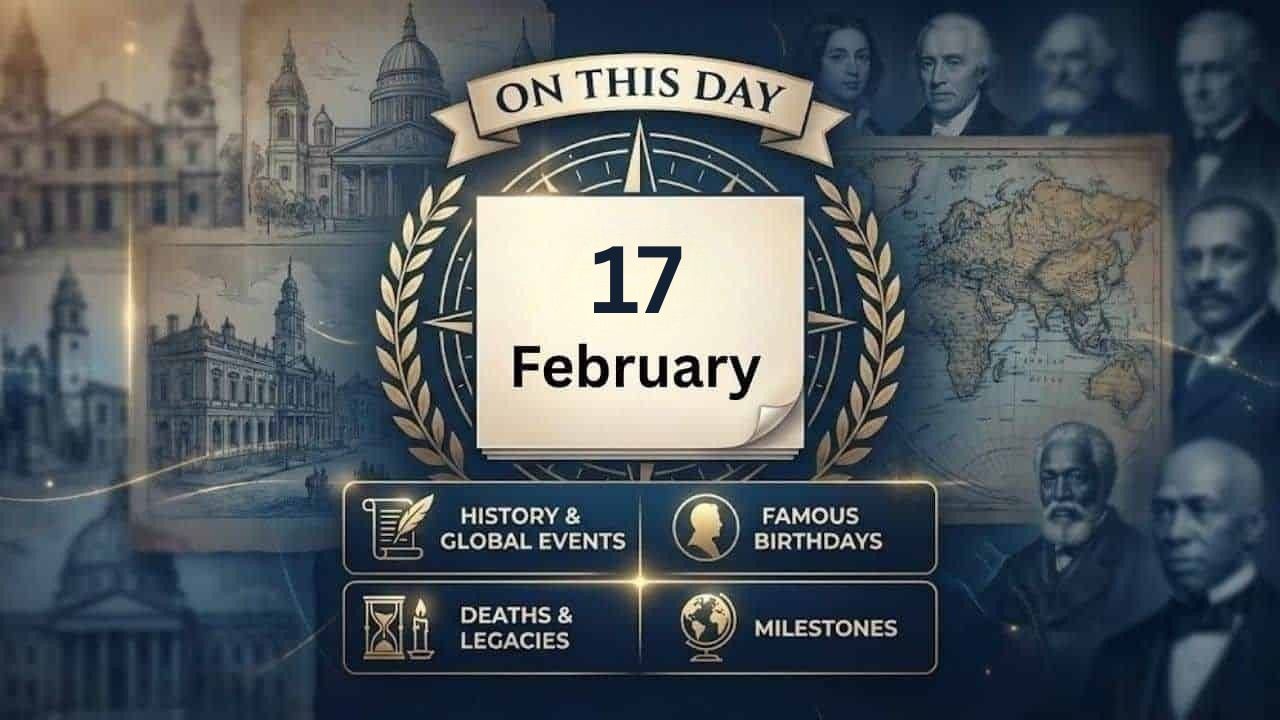January 13 has seen some remarkable events in history and has given the world several notable personalities. This article explores significant events that happened on this day and introduces influential people born on January 13.
These stories highlight achievements in science, literature, music, and more.
Historical Events of January 13
1. Galileo Galilei Discovers Callisto (1610)
On January 13, 1610, Galileo Galilei discovered Callisto, one of Jupiter’s moons. Callisto is the fourth-largest moon of Jupiter and is part of the group called the Galilean moons. Galileo used his telescope, a new invention at the time, to make this discovery.
This finding was important because it showed that not everything revolves around Earth, challenging the geocentric view of the universe. Instead, it supported the idea that the planets orbit the sun, a key concept of the heliocentric model. Galileo’s work laid the foundation for modern astronomy and changed how people understand the cosmos.
2. Jonathan Swift Ordained as an Anglican Priest (1695)
Jonathan Swift, best known as the author of Gulliver’s Travels, was ordained as an Anglican priest in Ireland on January 13, 1695. This step was a significant moment in his life and career.
Swift’s position in the church gave him a platform to write about political and social issues. His works often used satire to criticize corruption and injustice. Becoming a priest influenced his writing and helped shape his role as a moral and political commentator.
3. Béla Bartók’s “Kossuth” Premieres (1904)
On January 13, 1904, Béla Bartók’s symphonic poem “Kossuth” was performed for the first time in Budapest by the Budapest Philharmonic Society.
“Kossuth” was inspired by the Hungarian patriot Lajos Kossuth, a leader of the 1848 revolution. The music tells the story of Hungary’s struggle for independence. Bartók used Hungarian folk melodies to create a sense of national pride. This work marked the beginning of Bartók’s career as one of the most important composers of the 20th century.
4. Premiere of Gerhart Hauptmann’s “Die Ratten” (1911)
On January 13, 1911, Gerhart Hauptmann’s play “Die Ratten” (The Rats) premiered in Berlin. Hauptmann was a leading German playwright who won the Nobel Prize in Literature in 1912.
“Die Ratten” is a social drama that explores themes of poverty, morality, and survival in urban life. The play’s realistic style and deep character development made it a masterpiece of modern theater. It remains a powerful example of German literature.
5. Hitler Stages a Demonstration with Storm Troopers (1923)
On January 13, 1923, Adolf Hitler staged a large demonstration with 5,000 storm troopers in Germany. This event occurred during a time of political and economic chaos after World War I.
Hitler used the demonstration to promote his ideas and blame others for Germany’s problems, including the “November criminals” who signed the Treaty of Versailles. This event was part of Hitler’s rise to power and showed how he used propaganda to gain support. It was a warning of the dangerous path Germany was about to take.
Famous Birthdays of January 13
1. Henry II of Castile (1334–1379)
Henry II was born on January 13, 1334, in Seville, Spain. He became King of Castile and León in 1369. Henry’s reign was marked by his efforts to strengthen the monarchy and reduce the power of the nobility.
Henry is remembered for founding the Trastámara dynasty, which ruled Castile for over a century. Despite facing opposition and internal conflicts, he left a lasting legacy in Spanish history.
| Biography of Henry II of Castile |
|---|
| Born: January 13, 1334 |
| Died: May 29, 1379 |
| Reign: 1369–1379 |
| Known for: Founding the Trastámara dynasty |
2. Zhou Youguang (1906–2017)
Zhou Youguang, born on January 13, 1906, in Changchow, Kiangsu, Qing Empire, was a Chinese economist and linguist. He is known as the “father of pinyin,” the system used to romanize Chinese characters.
Zhou’s work made the Chinese language easier to learn and helped promote literacy in China. Pinyin is now used worldwide and has played a key role in modernizing China. Zhou lived to be 111 years old, witnessing immense changes in his country during his lifetime.
| Biography of Zhou Youguang |
| Born: January 13, 1906 |
| Died: January 14, 2017 |
| Known for: Developing pinyin |
| Lifespan: 111 years |
3. Michael Bond (1926–2017)
Michael Bond was born on January 13, 1926, in Newbury, England. He was an English writer best known for creating Paddington Bear, one of the most beloved characters in children’s literature.
Bond’s first book, A Bear Called Paddington, was published in 1958. It tells the story of a bear from Peru who is adopted by a British family. Paddington’s adventures have delighted readers around the world and inspired films, TV shows, and merchandise.
| Biography of Michael Bond |
| Born: January 13, 1926 |
| Died: June 27, 2017 |
| Known for: Paddington Bear |
| Nationality: English |
4. Rip Taylor (1931–2019)
Rip Taylor, born on January 13, 1931, in Washington, D.C., was an American actor and comedian. Known for his flamboyant personality, he became famous for his appearances on shows like The Gong Show and $1.98 Beauty Show.
Taylor’s over-the-top humor and energetic style made him a favorite in comedy. He often used confetti as part of his act, earning him the nickname “The King of Confetti.”
| Biography of Rip Taylor |
| Born: January 13, 1931 |
| Died: October 6, 2019 |
| Known for: Comedy, acting |
| Nickname: The King of Confetti |
5. Bob Forsch (1950–2011)
Bob Forsch was born on January 13, 1950, in Sacramento, California. He was a professional baseball pitcher who played in Major League Baseball (MLB) from 1974 to 1989. Forsch spent most of his career with the St. Louis Cardinals and also played for the Houston Astros.
Forsch is remembered for his skill on the mound and for throwing two no-hitters during his career. He was one of the best pitchers of his time and remains a beloved figure in baseball history.
| Biography of Bob Forsch |
| Born: January 13, 1950 |
| Died: November 3, 2011 |
| Known for: MLB pitching |
| Teams: St. Louis Cardinals, Houston Astros |
Reflections on January 13
January 13 is a day that reminds us of the variety of human achievements. From Galileo’s groundbreaking discoveries in astronomy to Michael Bond’s heartwarming stories of Paddington Bear, this date highlights the creativity, courage, and dedication of people throughout history. It also teaches us the importance of remembering historical events, both good and bad, to learn from the past.
Takeaways
January 13 holds a special place in history because of the remarkable events and people associated with it. Whether it’s Galileo’s discovery of Callisto, the rise of influential leaders, or the birth of creators who brought joy to the world, this date has left a lasting mark. Let us continue to explore and celebrate these moments to appreciate their impact on our world.
References
- “Galilean Moons: NASA’s Solar System Exploration.” NASA
- “Jonathan Swift Biography.” Encyclopedia Britannica
- “Béla Bartók: Composer Biography.” Bartók Archives
- “Gerhart Hauptmann and Die Ratten.” Nobel Prize Organization
- “Adolf Hitler and the Rise of the Nazis.” History.com
- “Zhou Youguang and Pinyin.” The Guardian
- “Michael Bond: Creator of Paddington Bear.” BBC
- “Rip Taylor Biography.” IMDb
- “Bob Forsch: MLB Statistics.” Baseball Reference








































